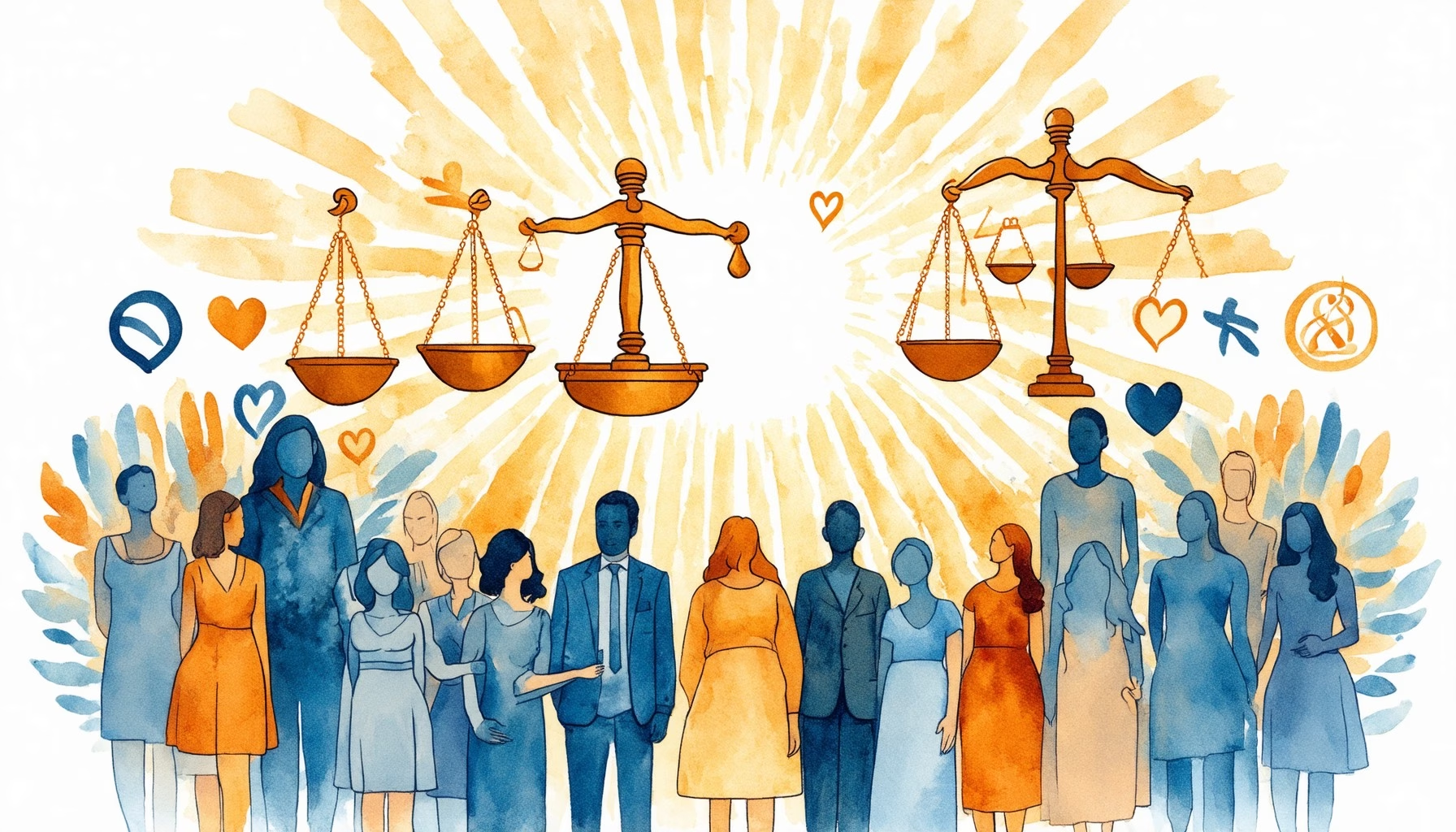Key Takeaways
- Qualify for free legal help by understanding income thresholds set by Federal Poverty Guidelines, typically ranging from 125% to 200% of the FPL.
- Access free attorney services through local legal aid organizations, ensuring support for various legal issues without financial burden.
- Utilize a free legal advice hotline 24/7 for immediate assistance and expert guidance on urgent legal matters.
- Consult with a lawyer for free over the phone to gain essential insights and clarify your legal rights without incurring costs.
- Explore online resources specific to your state, like Michigan Legal Help, for tailored legal assistance and support.
In today’s complex legal landscape, understanding how to advocate free legal help can be a lifeline for many individuals and families facing financial constraints. This article delves into essential insights regarding income qualifications for legal aid, the costs associated with legal aid lawyers, and the various resources available for those seeking free legal services. We will explore critical questions such as, “What is the maximum income to qualify for legal aid?” and “How much does a legal aid lawyer cost?” Additionally, we will highlight the benefits of utilizing a free legal advice hotline 24/7 and how to consult with a lawyer for free. Whether you are looking for free attorney services for family law or navigating the complexities of divorce, this guide aims to provide you with the knowledge and resources necessary to secure the legal assistance you need without the burden of high costs.
What is the maximum income to qualify for legal aid?
Understanding Income Qualifications for Legal Aid
To qualify for legal aid, income thresholds are primarily determined by the Federal Poverty Guidelines, which are updated annually. Here are the key points regarding maximum income limits for legal aid eligibility:
1. **125% of Federal Poverty Guidelines**: This is the most common threshold used by Legal Aid organizations funded by the Legal Services Corporation (LSC). For example, in 2023, the annual income limit for a household of one is approximately $17,175, while for a household of four, it is around $35,325.
2. **200% of Federal Poverty Guidelines**: Some Legal Aid organizations may have more flexible income criteria, allowing individuals with incomes up to 200% of the Federal Poverty Guidelines to qualify for assistance. This means an annual income of about $27,180 for a single individual and $55,500 for a family of four.
3. **Variable Income Limits**: Specific income limits can vary by Legal Aid organization and the type of legal case. Certain organizations may consider additional factors such as household size, expenses, and the nature of the legal issue when determining eligibility.
4. **State-Specific Programs**: Some states may have their own guidelines or additional resources for legal aid. For instance, programs like Gov Guider can provide tailored information based on your state and specific circumstances, helping you understand your eligibility better.
For the most accurate and updated information, it is advisable to consult the specific Legal Aid organization in your area or visit the Legal Services Corporation website.
Resources for Checking Eligibility for Legal Aid
Finding out if you qualify for legal aid can be straightforward with the right resources. Here are some effective ways to check your eligibility:
– **Visit Legal Aid Websites**: Many Legal Aid organizations have online eligibility calculators that can help you determine if you meet the income requirements. Websites like American Bar Association provide valuable resources and links to local Legal Aid offices.
– **Contact Local Legal Aid Offices**: Directly reaching out to your local Legal Aid office can provide personalized assistance. They can guide you through the application process and clarify any specific income limits or requirements.
– **Utilize Government Resources**: Websites such as Gov Guider offer comprehensive guides on how to get legal aid, including eligibility criteria and application steps.
– **Community Organizations**: Local non-profits and community organizations often have partnerships with Legal Aid services and can assist you in navigating the eligibility process.
By leveraging these resources, you can effectively determine your eligibility for free legal services and ensure you receive the support you need.

How much does a legal aid lawyer cost?
Understanding the costs associated with legal aid services is crucial for individuals seeking assistance. Legal aid lawyers typically provide services at little to no cost for those who qualify based on income and other factors. Many legal aid organizations operate on a sliding scale, meaning that fees may vary depending on your financial situation. In some cases, you may find free attorney services available for low-income families, ensuring that everyone has access to necessary legal support.
Exploring Costs Associated with Legal Aid Services
The costs of hiring a legal aid lawyer can be significantly lower than those of private attorneys. Many legal aid organizations offer free legal help for individuals who meet specific income criteria. It’s essential to understand that while some services may be free, others might involve nominal fees based on your income level. To get a clearer picture of potential costs, consider reaching out to local legal aid offices or visiting their websites for detailed information.
Free Attorney Services Available for Low-Income Families
For low-income families, there are numerous resources available to access legal assistance free of charge. Many organizations provide free attorney services that cover various legal issues, including family law, housing disputes, and more. Additionally, you can consult with a lawyer for free through various hotlines and community programs designed to help those in need. Utilizing these resources can help ensure that you receive the legal support necessary without the burden of high costs.
What is the maximum you can make to qualify for financial aid?
Understanding the financial aid qualifications for legal assistance is crucial for individuals seeking support. The maximum income to qualify for financial aid varies by state and the type of legal aid being sought. Generally, legal aid organizations set income limits based on the federal poverty level (FPL). For instance, many programs require applicants to earn less than 125% to 200% of the FPL, depending on the specific services offered. This means that if your income falls within this range, you may be eligible for free legal services, including representation and consultations.
To determine your eligibility, it’s essential to review the specific income guidelines of the legal aid organization you are considering. Many organizations provide detailed information on their websites, outlining the income thresholds and other qualifying criteria. For instance, the Legal Services Corporation offers resources that can help you understand the financial requirements for legal aid in your area.
Financial Aid Qualifications for Legal Assistance
When applying for financial aid for legal assistance, you will typically need to provide documentation of your income, household size, and any other relevant financial information. This documentation helps legal aid organizations assess your eligibility for services. Common qualifications include:
- Income verification through pay stubs, tax returns, or government assistance documentation.
- Proof of residency in the state where you are seeking legal aid.
- Details about your legal issue, which may determine the type of assistance available.
Understanding these qualifications can streamline the process of obtaining legal help. If you find yourself unsure about your eligibility, consider reaching out to local legal aid offices or utilizing resources like Gov Guider’s free legal help resources for guidance.
How to Navigate Income Limits for Legal Aid
Navigating income limits for legal aid can be challenging, but there are several strategies to ensure you receive the assistance you need:
- Research local legal aid organizations to understand their specific income limits and services offered.
- Utilize online tools and calculators to estimate your eligibility based on your income and household size.
- Contact legal aid offices directly to discuss your situation and seek advice on how to proceed.
Additionally, many organizations offer a free legal advice hotline 24/7 that can provide immediate assistance and answer questions about income qualifications and available resources. By taking these steps, you can effectively navigate the complexities of financial aid for legal assistance and secure the help you need.
Free Legal Advice Hotline 24/7
Accessing a free legal advice hotline 24/7 can be a vital resource for individuals seeking immediate legal assistance. These hotlines are designed to provide quick, reliable legal advice without the need for an appointment or payment. Whether you have questions about family law, housing disputes, or other legal matters, a free legal advice hotline can connect you with knowledgeable professionals ready to help.
Accessing 24/7 Free Legal Advice Hotlines
Many organizations offer free legal advice hotlines that operate around the clock. These services are particularly beneficial for those who may not have the means to hire a lawyer or who need urgent legal guidance. To access these hotlines, you can:
- Search online for local or national legal aid organizations that provide hotline services.
- Visit websites like the Legal Services Corporation or American Bar Association for resources and contact information.
- Check community centers or local government websites for listings of available legal hotlines.
Benefits of Using a Free Legal Advice Hotline
Utilizing a free legal advice hotline offers numerous advantages:
- Immediate Assistance: You can receive answers to your legal questions without delay, which is crucial in urgent situations.
- Cost-Effective: These services are free, making them accessible to low-income families and individuals who cannot afford legal fees.
- Expert Guidance: Hotlines are staffed by legal professionals who can provide accurate information and advice tailored to your situation.
- Confidentiality: Conversations with hotline attorneys are typically confidential, allowing you to discuss sensitive issues without fear.
For more information on how to get legal help for free, visit Gov Guider’s guide on free legal help resources.

Free Lawyer Consultation Over the Phone
Consulting with a lawyer for free over the phone is an excellent way to gain initial legal advice without incurring costs. Many legal aid organizations and law firms offer free consultations to help individuals understand their legal rights and options. This service is particularly beneficial for those who may not have the means to pay for legal representation upfront. By reaching out to a free legal advice hotline 24/7, you can connect with knowledgeable professionals ready to assist you.
How to Consult with a Lawyer for Free
To consult with a lawyer for free, start by identifying local legal aid organizations or hotlines that provide free attorney services. Many of these organizations have dedicated phone lines where you can speak with a legal professional about your situation. Here are some steps to follow:
- Search for local legal aid offices or hotlines that offer free consultations. Websites like Legal Services Corporation can help you find resources in your area.
- Prepare a brief overview of your legal issue to make the most of your consultation. This will help the lawyer understand your situation quickly.
- Be ready to provide any necessary information, such as your income level, to determine eligibility for further assistance.
- Take notes during the call to remember the advice given and any next steps recommended by the lawyer.
Utilizing these resources can help you access legal assistance free of charge, ensuring you receive the support you need.
Advantages of Free Lawyer Consultations Over the Phone
Free lawyer consultations over the phone offer several advantages:
- Accessibility: You can receive legal advice from the comfort of your home, making it easier for individuals with mobility issues or those living in remote areas to access help.
- Cost-effective: These consultations eliminate the financial barrier associated with seeking legal advice, allowing low-income families to get the help they need without worrying about fees.
- Immediate Guidance: Speaking with a lawyer can provide immediate answers to pressing legal questions, helping you make informed decisions quickly.
- Confidentiality: Phone consultations maintain your privacy, allowing you to discuss sensitive issues without fear of judgment.
For more information on how to get legal help for free, explore resources available at Gov Guider.
Free Legal Advice Michigan Online
Finding free legal advice online in Michigan is essential for individuals seeking assistance without the burden of legal fees. Various resources are available that cater to low-income families and those in need of legal guidance. These platforms provide access to knowledgeable attorneys and legal professionals who can offer valuable insights and support.
Finding Free Legal Advice Online in Michigan
In Michigan, several organizations and websites offer free legal advice online. One of the most prominent resources is the Legal Services Corporation, which provides a directory of legal aid offices across the state. Additionally, the American Bar Association offers a wealth of information on finding free legal services and advice tailored to your specific needs.
Another excellent resource is Nolo, which provides legal information and resources that can help you understand your rights and options. For those looking for immediate assistance, many local legal aid organizations have established online chat services or email consultations, allowing you to consult with a lawyer for free from the comfort of your home.
Online Resources for Legal Assistance in Michigan
Several online platforms specifically cater to Michigan residents seeking legal assistance. Websites like FindLaw offer comprehensive guides and articles on various legal topics, including family law, housing disputes, and criminal defense. These resources can help you navigate the complexities of the legal system and find the support you need.
Moreover, the Michigan Legal Help website is an invaluable tool for individuals looking for free legal help. It provides self-help resources, legal forms, and information on how to get legal aid. By utilizing these online resources, you can access free legal advice online and connect with free attorneys who specialize in various areas of law, ensuring you receive the assistance necessary to address your legal issues effectively.
Legal assistance for divorce
Free Legal Help for Divorce Cases
Divorce can be a complex and emotionally taxing process, especially for low-income families. Fortunately, there are various resources available that provide free legal assistance for divorce cases. Many legal aid organizations offer services specifically designed to help individuals navigate the divorce process without the burden of legal fees. For instance, organizations like the Legal Services Corporation provide access to free attorneys who specialize in family law, ensuring that you receive the necessary support during this challenging time. Additionally, local bar associations often have programs that connect individuals with free family lawyers who can offer legal advice and representation.
To find free legal help for divorce, consider reaching out to local legal aid offices or utilizing online resources that list available services. Websites such as [Nolo](https://www.nolo.com/) and [FindLaw](https://www.findlaw.com/) provide directories of legal aid organizations that can assist with divorce proceedings. These resources can help you understand your rights and options, making the process more manageable.
Finding Family Law Free Legal Advice for Low-Income Families
For low-income families seeking family law free legal advice, several options are available to ensure you receive the support you need. Many states have established legal aid programs that focus on family law issues, including divorce, custody, and child support. These programs often provide free consultations, allowing you to consult with a lawyer for free and discuss your specific situation.
In addition to local legal aid offices, online platforms offer free attorney advice online, making it easier to access legal resources from the comfort of your home. Websites like [LegalZoom](https://www.legalzoom.com/) and [American Bar Association](https://www.americanbar.org/) can guide you to free legal services tailored to your needs. Utilizing these resources can empower you to navigate the complexities of family law with confidence, ensuring that your rights and interests are protected throughout the divorce process.




